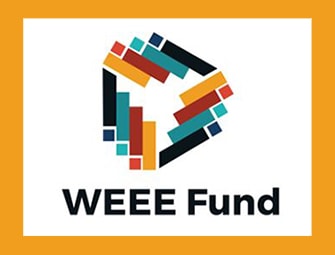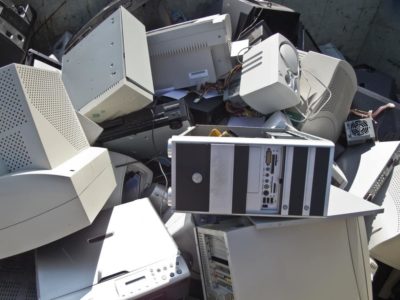Money from the 2017 WEEE compliance fee will be distributed via an “evidenced-based approach”, the organisation overseeing the funding scheme has said.
The compliance fee is made up of a pot of money paid for by Producer Compliance Schemes (PCS) if they miss collection targets for waste electrical and electronic equipment (WEEE).

The 2017 WEEE fund topped £8 million, and is being ‘managed’ by JTAC, a not-for-profit group set up by the Joint Trade Assosciation
For 2017, the overall amount collected topped £8 million – money that will be used to pay for projects that boost the collection of WEEE going forward.
Administration of the fund is being overseen by the Joint Trade Association (JTA), a collection of electronics industry trade bodies including TechUK, which has set up a not-for-profit company – JTAC. The not-for-profit organisation is being led by Scott Butler of Hathaway Green and formerly of ERP.
So far, around £900,000 worth of funding from the 2017 pot has been announced by the JTA, which is being used to fund two projects. One of the projects will look at harmful pollutants from WEEE plastics and the other will review the Mixed WEEE Protocol and the Large Domestic Appliances (LDA) Protocol (see letsrecycle.com story).
The submissions for other projects will go before a judging panel which consists of producers, AATF operators, Defra officials and other stakeholders later this year, having been received for consideration in the summer.
Stages
Susanne Baker head of environment and compliance at TechUK, which is responsible for running the WEEE fund with the Joint Trade Association grouping, explained to letsrecycle.com that the JTA is keen to ensure the money was being invested ‘in the right way’.
“In previous years, a local authority would bid for part of the funding to help with a project, such as an awareness campaign or collection bins, which through market research this year we have found was becoming quite difficult,” Ms Baker explained.
She added: “We were hearing that the same sort of local authorities were applying year on year and some of the less resourceful found it hard to have the time and space to think and develop through a proposal.”
Once the fee was announced, a stakeholder group was set up to look at how the funds can be spent, which included local authorities and Defra representatives.
From this, it was decided that three areas of focus would be targeted, which includes technical research projects, communications and behaviour change, and lastly, community support.
Ms Baker explained that a market research project was also funded by the group, and delivered by Anthesis, in September 2018 which highlighted a number of issues with previous methods.
This research looked at the 2015 compliance fee where £1.5 million was raised. Researchers looked at 30 different projects, which received a total of £1,051,240 in funding through the scheme.
The findings of the study suggested that despite a ‘good rate of return across all the projects’, there was considerable variation in performance with the best performing projects over-collecting by 600 tonnes, at cost of £26 for each tonne of extra WEEE recycled, whereas the worst performers missed predicted returns by 900 tonnes, costing a total of £99,600 per tonne collected.
‘Open-minded’
Following on from the results of the study, Ms Baker said that this will shape future administration of the scheme, ensuring that money is directed towards the right projects.
She said: “Essentially, it was a market research activity before we embark on any communications. Basically, an evidence-based approach of where we want to go. We are conscious of the fact that there have been a number of activities to promote WEEE recycling and we want to learn some of the lessons there or at least the findings there to help going forward.”
Next
Looking forward, the JTA says it is in the process of producing a behaviour challenge brief, which it will feedback to stakeholders and industry representatives.
“We will look to tie some of these things together and we’re in discussions to address some further points,” added Scott Butler, the WEEE fund project manager.
“One of the principles we had is that we won’t rush to spend the fund, it’s a rare opportunity to have this much money to invest in systems and it needs to be spent wisely. We also want the sector behind us.”
The post £8 million WEEE Fund spending outlined appeared first on letsrecycle.com.
Source: letsrecycle.com General




